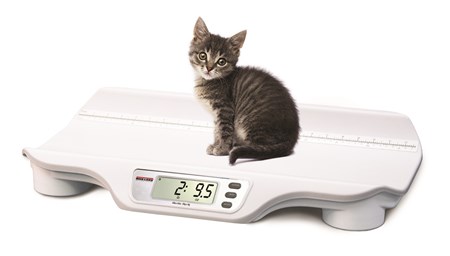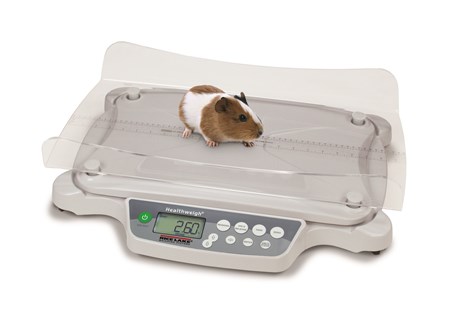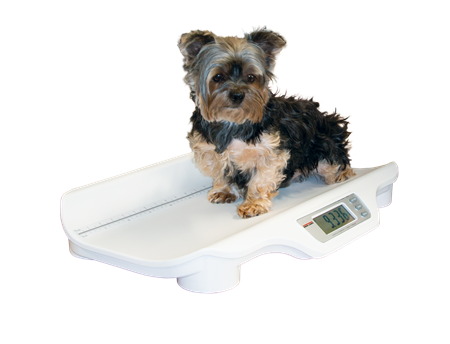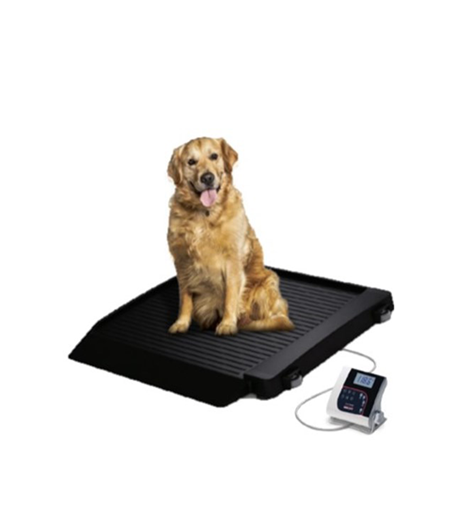Is the website displaying in the correct language? Please confirm or select a different language.
Your region has been set automatically. Please confirm or select a different region.
Accurate Scales Are Critical for Newborn Animals
Tracking weight gain in neonatal animals is essential in many patient care plans. Having an accurate weight record helps veterinarians ensure their patients are growing at a healthy rate and alerts them to situations that may require intervention and supportive care.
Many neonatal patients should be weighed multiple times a day for the first weeks of life to ensure they are gaining weight with every meal. As they grow, weight checks can be reduced to once a day, though weight gain remains an important developmental milestone for the first few months of life.
Scale Features for Neonatal Patient Weighing
When caring for and treating neonatal animals, you should ensure your scale has a resolution small enough to accurately capture the weight of even the smallest patients. Some patients may be so small that a precision laboratory balance is the best option for at least the first few days of life.
Many young animals, however, can be accurately weighed on a scale that will capture weight as low as 1 gram or 0.05 ounces for animals under 5 kilograms or 10 pounds. Some scales have dual-range weighing functionality, meaning there are two capacity ranges with the lower range providing increased accuracy.
For example, a dual range scale may capture weights from 0 to 10 pounds in 0.05-ounce increments (0 to 5 kilograms in 1-gram), but capture weights from 10 to 33 pounds in 0.1-ounce increments (5 to 15 kilograms in 2-gram).
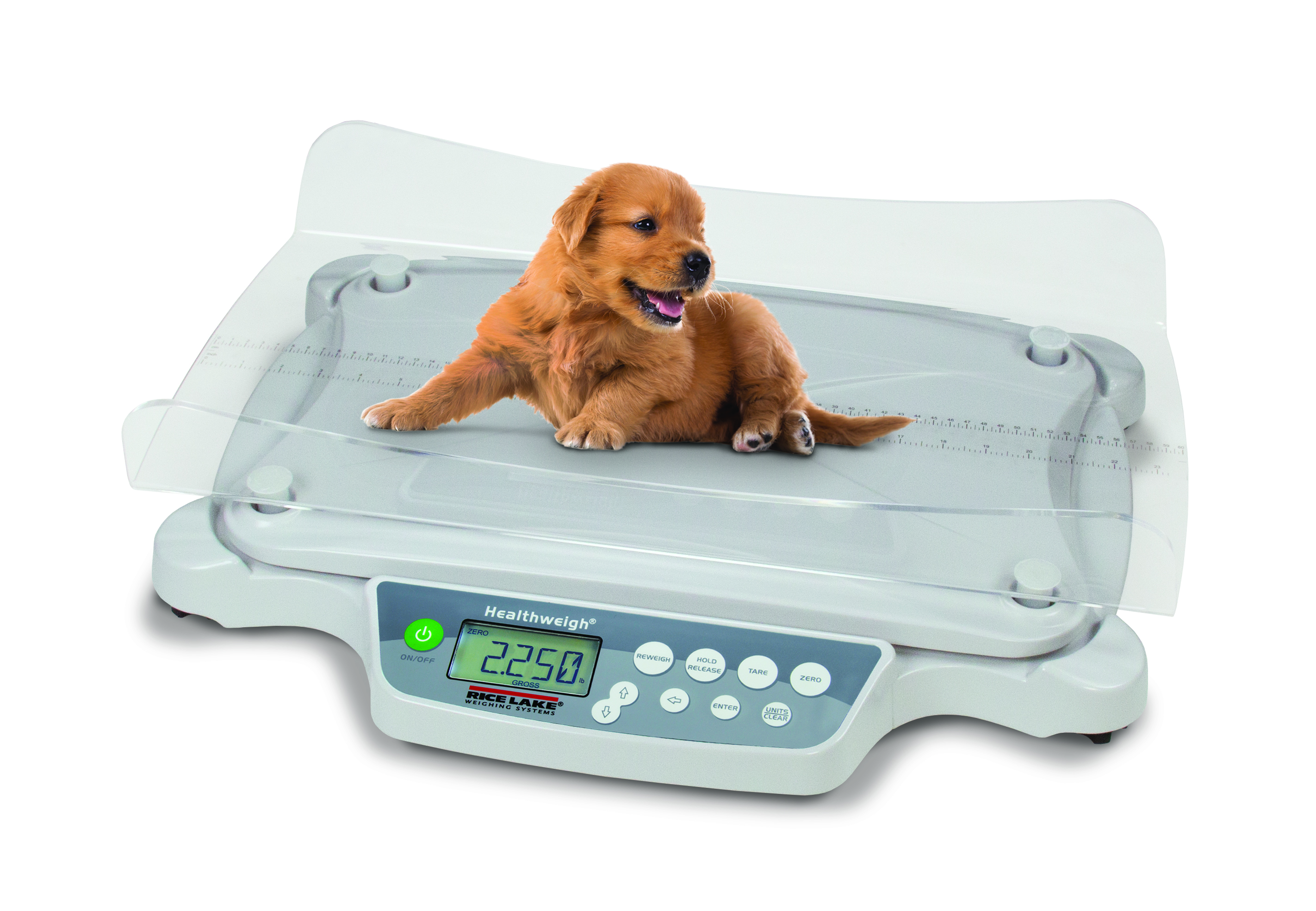
For active or mobile patients, you may also need a scale with movement compensation technology. By sensing any movements from your patients, scales with this technology are able to provide a stable, accurate weight reading. Additionally, you may need a scale that offers locking units of measure to ensure the scale isn’t accidentally switched from pounds to kilograms or vice versa.
Removable, easy-to-clean trays can be beneficial when handling neonatal animals. If measuring animal length or width is important, you may want to consider a scale that has a built-in measuring tape on the tray, allowing you to record body length and weight at the same time.
Some other scale features to consider are power source and display. Scales with automatic shut-off can improve battery life, but having an AC adaptor available allows you to prepare for low-battery warnings and ensure the scale is always ready when you need it. An easy-to-read display with straightforward operation can simplify patient weight checks. It should also be easy for operators to tare the scale (set it to zero) if a pad or blanket is placed on the tray before weighing neonatal patients.
Rice Lake Weighing Systems offers a variety of companion animal scales ideal for weighing small and neonatal patients.



 My Account
My Account
